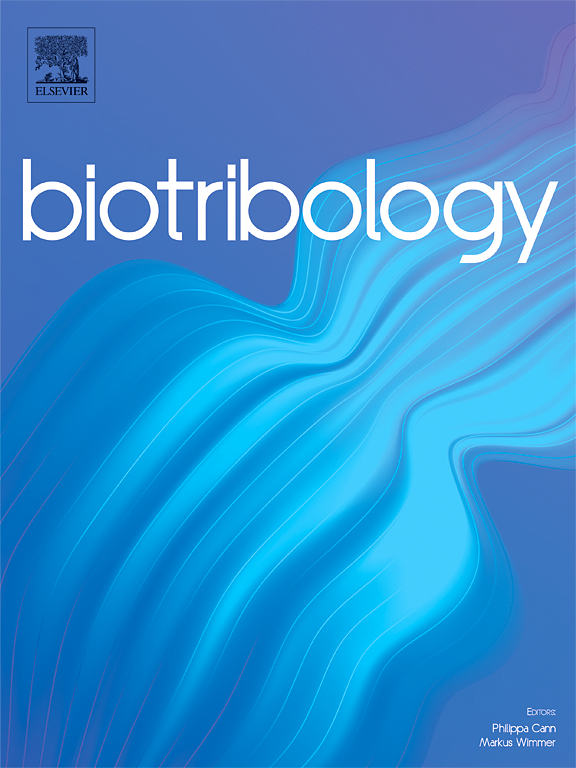Protection of Dental Materials: Mucin Layer Growth Kinetics & Properties and Their Influence on Lubrication
Abstract
The formation of mucin layers on dental materials are intrinsic to maintaining a healthy oral cavity. Of interest to this study is the absorption-property-lubrication ability of surface bound mucin layers on to hard dental surface akin to those observed in oral salivary pellicles. QCM-D experiments examined the growth of these mucin layer overtime. Pseudo First Order, Pseudo Second Order and Elovich kinetic adsorption models were applied to gain a greater insight into the adsorption process. As lubrication on teeth is an important property of oral lubrication, a micro-tribometer was used to assess the lubricity of surfaces over a range of normal loads. Mucin layers grew with an initial rapid phase followed by a second slower adsorption phase which followed Pseudo First Order or Elovich adsorption kinetics on hydroxyapatite and gold surfaces respectively. Enhanced lubrication was seen when hydroxyapatite and mucin were used demonstrating the chemical nature of the underlying surfaces is important in establishing effective mucin films. The formation of mucin layers was attributed to the surface composition driving the adsorption process and subsequent viscoelastic properties of these layers. Hydroxyapatite was important in promoting enhanced mucin lubricity and that mucin boundary lubrication was related to the viscosity and shear modulus of mucin layers.

 求助内容:
求助内容: 应助结果提醒方式:
应助结果提醒方式:


